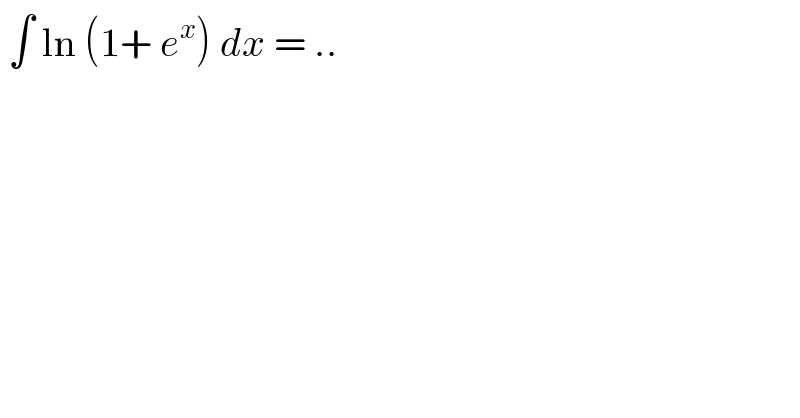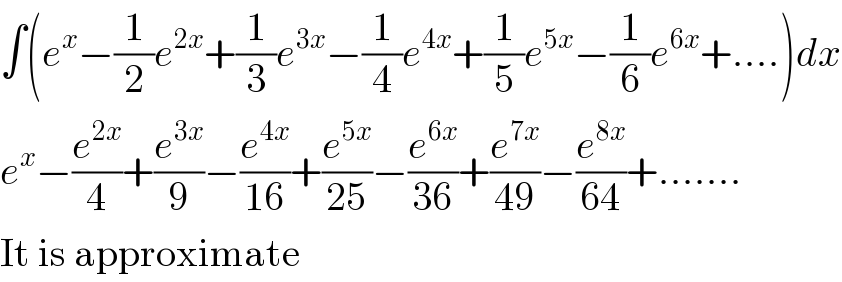
Question and Answers Forum
Question Number 101597 by Rio Michael last updated on 03/Jul/20

Commented by Dwaipayan Shikari last updated on 03/Jul/20

Commented by floor(10²Eta[1]) last updated on 03/Jul/20

Commented by Rio Michael last updated on 03/Jul/20

